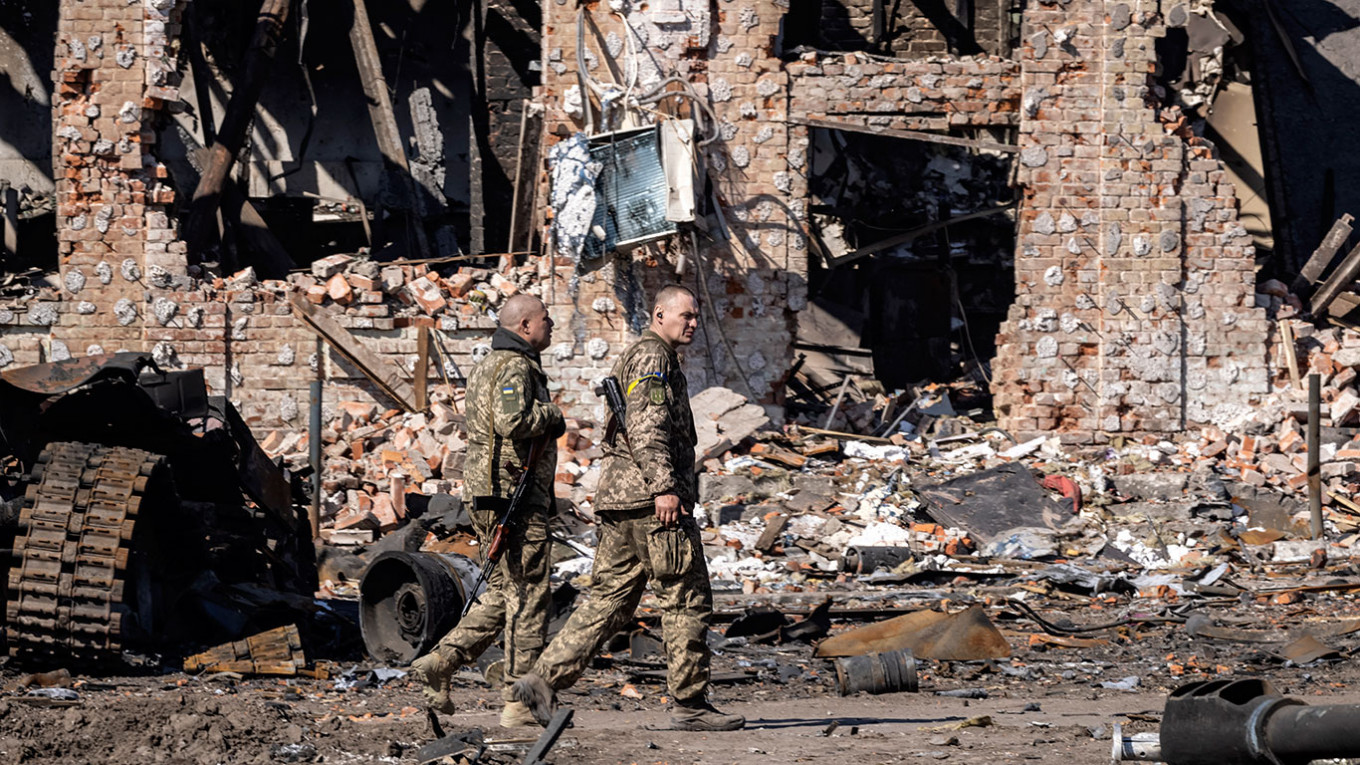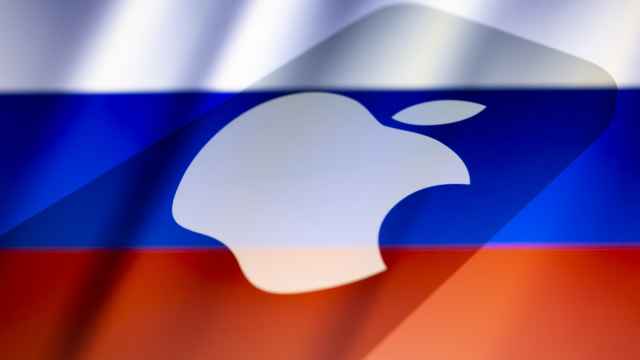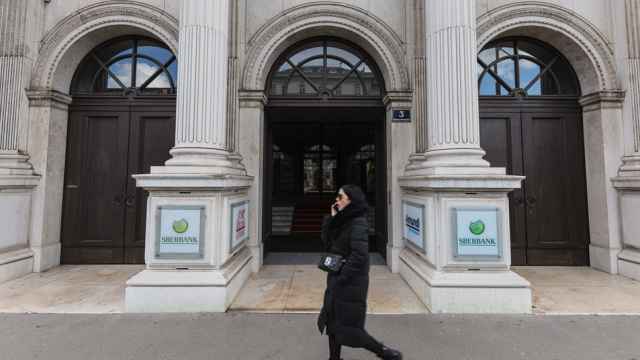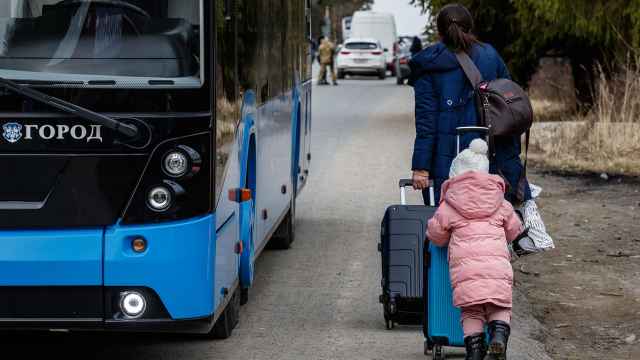Ukraine on Wednesday accused Russia of shelling a city where it had promised de-escalation, dampening hopes of any resolution to a conflict that has killed thousands and displaced millions.
Ukraine and Western powers had already cast doubt on Russia's pledge to reduce military activity around Chernigiv and the capital Kyiv, made during face-to-face talks in Istanbul on Tuesday.
"Chernigiv was shelled all night," regional governor Vyacheslav Chaus wrote on social media.
AFP reporters on Wednesday could also hear frequent explosions coming from the direction of the suburban town of Irpin to the northwest of Kyiv.
Oleksandr Motuzyanyk, a spokesman for the Ukrainian defense ministry, said in a video statement that there had been "a certain partial movement of individual units from the Kyiv direction, as well as from the Chernigiv direction."
But he added: "We do not observe the mass removal of Russian troops from these areas."
Russian officials had pledged to "radically" reduce their attacks because of progress in negotiations on "the neutrality and non-nuclear status" of Ukraine -- two central concerns for Moscow.
Both sides called the Istanbul meeting "meaningful" and "positive," but the Kremlin on Wednesday played down hopes of a breakthrough.
"We cannot state that there was anything too promising or any breakthroughs," Kremlin spokesman Dmitry Peskov told reporters.
"There is a lot of work to be done," Peskov said.
Stock markets, which had been buoyed by the more hopeful comments on Tuesday, slid again and oil prices rose back up on supply concerns.
The Pentagon said Russia had merely repositioned a "small number" of forces near Kyiv, and could be preparing a "major offensive" elsewhere.
The "vast majority" of Russian forces around Kyiv remained in place, said Pentagon spokesman John Kirby.
Still, the talks in Istanbul marked the first sign of progress in discussions to end the conflict, with a Kyiv negotiator saying there were "sufficient" conditions for Ukrainian President Volodymyr Zelensky to meet his Russian counterpart Vladimir Putin.
U.S. President Joe Biden was due to speak to Zelensky later on Wednesday.
'Still in shock'
Ukraine's Western allies said they had no plans to ease measures taken to punish Russia for the invasion.
Western sanctions should stay until "every single" Russian soldier is out of Ukraine, said British Prime Minister Boris Johnson, who called for sanctions to be intensified.
Poland also urged the European Union to impose a tax on Russian hydrocarbon imports while Germany and Austria raised their alarm levels over fears Russia could cut gas supplies to countries that refuse its demand to be paid in rubles.
Russia, meanwhile, worked on shoring up support from allies.
On a visit to China on Wednesday, Russian Foreign Minister Sergei Lavrov said: "We, together with you, and with our sympathizers will move towards a multipolar, just, democratic world order."
Lavrov will go this week to India, which has abstained from UN resolutions censuring Russia and continues to buy Russian oil and other goods, despite pressure from Washington.
On the ground in Ukraine, the country's army has been recapturing territory.
In the town of Trostyanets, just 30 kilometers (19 miles) from the Russian border, AFP reporters saw dazed residents emerge from their homes to search for food as Ukrainian soldiers salvaged what they could from abandoned Russian vehicles.
"There was nothing left to eat in the town, no water and no electricity," said Pavlo, who has spent the past month hunkered down in the basement of his home.
In Irpin, a gateway to Kyiv, officials said they were still recovering bodies in the streets and the area was still being shelled by Russia.
Irpin's mayor Oleksandr Markushyn said at least 200 people had been killed there since the war began.
"Fifty percent of the city is destroyed, including critical infrastructure," he said.
'Death everywhere'
Some 20,000 people are believed to have been killed since the conflict began on Feb. 24, according to Zelensky, though the number of casualties could not be independently verified.
On Tuesday a Russian missile strike on the southern town of Mykolaiv left at least 14 dead, Ukrainian officials said.
There was also no progress for the estimated 160,000 people still trapped with little food, water or medicine in the devastated southern port city of Mariupol.
Russian forces have encircled the city and their steady and indiscriminate bombardment has killed at least 5,000 people, but possibly as many as 10,000, according to one senior Ukrainian official.
France, Greece and Turkey have been trying to organize a mass evacuation of civilians from the city, but talks between French President Emmanuel Macron and Putin ended Tuesday without a deal.
On Wednesday, Ukrainian ombudswoman Lyudmyla Denisova said a Red Cross facility was targeted by Russian aircraft and artillery.
UN rights chief Michelle Bachelet said Russia's widespread and indiscriminate attacks were of "immense concern."
"Indiscriminate attacks are prohibited under international humanitarian law and may amount to war crimes," Bachelet told the UN Human Rights Council in Geneva.
Aid groups have called regularly for access to Mariupol, describing the conditions as hellish, and Ukrainian officials have accused Russian troops of forcibly deporting residents to Russia.
Civilians who have managed to escape Mariupol describe a place with "death everywhere."
"We buried our neighbors, we saw death everywhere and even my children saw it," said Mariia Tsymmerman, who fled to Zaporizhzhia two weeks ago, but is now making the perilous journey back to deliver supplies and help others leave.
"I know a woman who killed her own dog to feed her children," she said.
A Message from The Moscow Times:
Dear readers,
We are facing unprecedented challenges. Russia's Prosecutor General's Office has designated The Moscow Times as an "undesirable" organization, criminalizing our work and putting our staff at risk of prosecution. This follows our earlier unjust labeling as a "foreign agent."
These actions are direct attempts to silence independent journalism in Russia. The authorities claim our work "discredits the decisions of the Russian leadership." We see things differently: we strive to provide accurate, unbiased reporting on Russia.
We, the journalists of The Moscow Times, refuse to be silenced. But to continue our work, we need your help.
Your support, no matter how small, makes a world of difference. If you can, please support us monthly starting from just $2. It's quick to set up, and every contribution makes a significant impact.
By supporting The Moscow Times, you're defending open, independent journalism in the face of repression. Thank you for standing with us.
Remind me later.






